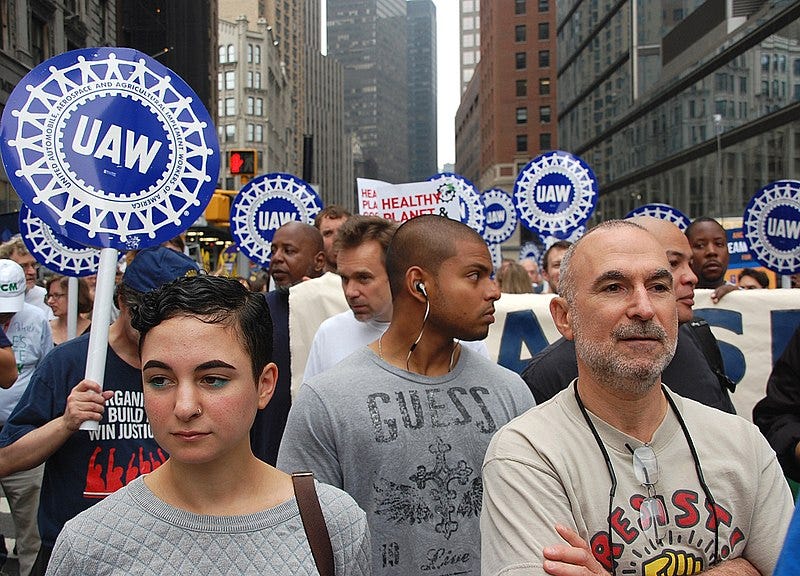Union of Apathetic Workers? Over 90% of UAW Members Did Not Vote In Union's Officer Election
Of the less than 10% of UAW members who did bother to vote, only four in 10 were 'active' members.
In November, for the first time in its nearly 90-year history, members of the United Auto Workers (UAW) had the right to participate in directly electing their union’s leadership.
However, of the 1.1. million ballots sent out to active and retired members, over 90 percent of the union’s membership failed to participate and of those who did participate, only four in ten were ‘active’ members—six out of ten were retired members, according to UAW Local 1268’s president Kevin Logan [in PDF].
As of this writing the unofficial results of the International Executive Board election have come in and I will be the first to say that it is very disappointing that out of 1.1 million ballots that were mailed out, only 104,776 of those eligible members participated in this latest election! It is very sad that approximately 10% of the entire membership is all that voted and 60% of the votes casted were from retirees. That means only 40% that cast their vote were the active members! [Emphasis added.]
The Trickle-Down Effect
"It's a trickle-down effect of the concessionary agreements," Ray Jensen, a General Motors Co. employee at the automaker's Tonawanda powertrain plant in New York, told the Detroit News last month, "(that has) turned into a lack of engagement and turned into people thinking that it doesn't matter if they vote anymore, because nothing's going to change."
Election Due To UAW’s Years-Long Corruption Scandal
For decades, the UAW’s president was hand selected by the UAW’s Executive Board without union members having any input.
However, as a result of a years-long corruption scandal involving former over a dozen union executives—including two former UAW presidents—being indicted and convicted of paying and pocketing bribes, breaking labor laws and stealing dues money from members, a federal monitor was put in place to continue rooting out corruption in the UAW.
As a result of the consent degree with the federal government, UAW members—for the first time in the union’s history—were allowed to participate in a one-member-one-vote election for the union’s top leadership.
Although the UAW election is not yet finalized—there is a runoff election for two undecided officer positions, as well as a lawsuit by one of the candidates to have the election monitor redo the entire election—the general apathy of the UAW members may pose a problem for the union in the future.
Harley Shaiken, a labor expert from University of California-Berkeley, said the small turnout raised a challenge for the union since it indicates a smaller fraction of the membership is engaged with the union, reported the Detroit Bureau.




